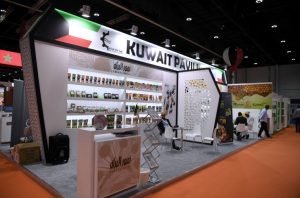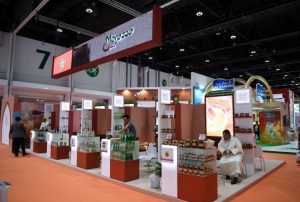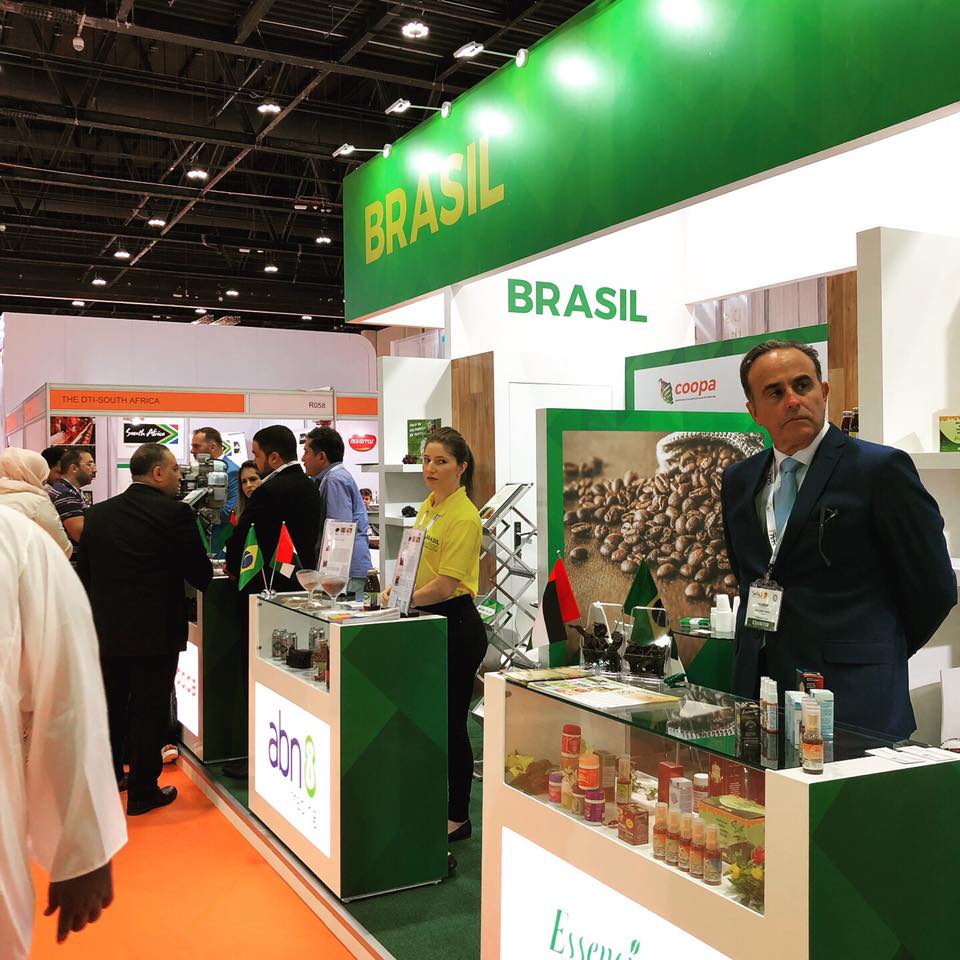Abu Dhabi – The 9th edition of the food industry fair SIAL Middle East, which ended Wednesday (12) in Abu Dhabi, facilitated the closing of 135 business deals amounting to 7 billions United Arab Emirates dirhams (USD 1.9 billion), according to preliminary information published by Emirates News Agency (WAM). The 4th Date Palms Trees Expo of Abu Dhabi happened simultaneously with the fair.
According to the news agency, the three days fair reunited more than one thousand exhibitors, 34 national or thematic pavilions and approximately 28 thousand visitors from more than 45 countries.

One of these national pavilions was the Brazilian one (pictured above), organized by the Ministry of Agriculture, Livestock, and Supply (Mapa), with support from the Arab Brazilian Chamber of Commerce, Itamaraty, and Brazilian Trade and Investment Promotion Agency (Apex-Brasil). The pavilion included 14 food and beverage businesses, and many of them closed deals during the event.
Mapa expects that the trading volume generated over the next 12 months as a result from the fair to be around at least the same value in last year’s event, USD 20 million.
‘The exceptional success of SIAL Middle East 2018 and the unprecedented visitor turnout demonstrates the continued regional and global interest in the mega event that serves as an ideal platform to explore the latest F&B products and services, and to discuss promising investment opportunities with leading specialists, top buyers and decision-makers,’ said the president of the fair organizing committee Thamer Al Qasimi according to WAM.

He added that the event’s priority is to keep the food and beverage industry in step with the sector’s most recent trends, strategies and innovations in order to guarantee the constant development of local production and increase food safety ‘for the sake of current and future generations.’
According to WAM, the food trading in the Emirates moved around 121 billions dirhams (USD 32,9 billion) in 2016. Local consumption was 48.1 million tons that year, and the projection is that it reaches 59.2 million tons in 2025.
Translated by Guilherme Miranda




